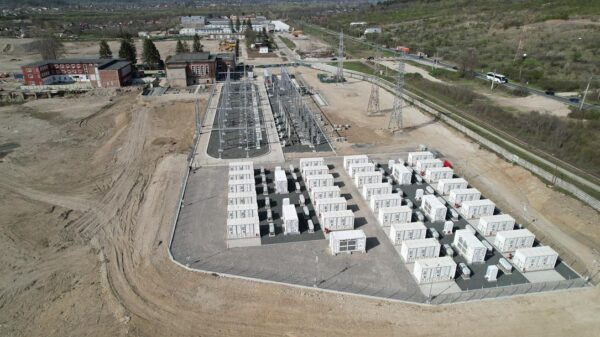TeraWulf Inc (NASDAQ: WULF) shares fell in after-hours trading Monday after the bitcoin mining and data center company missed third-quarter expectations.
Revenue jumped 87 per cent to USD$50.6 million, boosted by higher average bitcoin prices, expanded mining capacity, and other factors. Still, the company posted a loss of USD$1.13 a share, compared with analysts’ expected loss of 4 cents per share, according to FactSet. Revenue had been projected to nearly double to $53 million.
Despite the miss, TeraWulf showed its success in raising capital. CFO Patrick Fleury said the company completed over $5 billion in funding over recent months, reflecting strong investor confidence in its growth and business model.
The stock initially slid 5 per cent in extended trading but pared losses to under 3 per cent by 4:30 p.m. ET, holding above its 50-day moving average. TeraWulf has climbed 152 per cent year to date, with its most recent surge in August after announcing 10-year hosting agreements with Fluidstack and a stake acquisition by Alphabet inc (NASDAQ: GOOG).
Meanwhile, Bitdeer Technologies Group (NASDAQ: BTDR) shares also reacted negatively after third-quarter results. Revenue soared 173.6 per cent to $169.7 million, exceeding analysts’ expectation of $158.75 million.
Yet, Bitdeer posted a loss of USD$1.28 per share, wider than the FactSet consensus of 16 cents, though adjusted EBITDA reached USD$43 million, a significant improvement from a USD$7.9 million loss a year ago. Self-mining revenue surged 315 per cent to USD$130.9 million, reflecting higher bitcoin prices and increased mining hashrate. Conversely, hosting revenue fell 12.5 per cent to USD$8.4 million as some contracts ended and inefficient equipment was removed.
Read more: Zcash emerges as “Encrypted Bitcoin” as on-chain surveillance concerns rise
Read more: Core Scientific votes down merger with AI cloud firm CoreWeave
Bitdeer mined 511 bitcoin in October
Bitdeer remains optimistic about capitalizing on the growing AI computing demand. Chief Business Officer Matt Kong noted the shortage of AI infrastructure is intensifying globally. He added that allocating 200 megawatts of power capacity to AI cloud services could generate over USD$2 billion in annualized revenue by the end of 2026. Bitdeer operates data centers in the U.S., Norway, and Bhutan. It also mined 511 bitcoins in October, up 13 per cent from September.
Shares of Bitdeer opened up 6 per cent on Monday but reversed during the session, closing lower in heavy trading. The stock fell below its 50-day moving average near USD$19, a bearish technical signal. The downtrend began after an all-time high of USD$27.80 on October 15.
Both TeraWulf and Bitdeer illustrate the volatility facing bitcoin miners, with high revenue growth tempered by wider-than-expected losses. Additionally, investors appear to weigh potential long-term opportunities in AI and data center expansion against short-term profitability concerns.
.













